It looks like you're using an Ad Blocker.
Please white-list or disable AboveTopSecret.com in your ad-blocking tool.
Thank you.
Some features of ATS will be disabled while you continue to use an ad-blocker.
share:
I thought in light of the many "black" posts, this would be quite an appropriate time to post this as a reminder to all that colour & race are not
barriers to success and acceptance but perhaps attitude is
Sarah Forbes Bonetta was a Princess of the African Tribe of the Yoruba People of Nigeria. She was taken as a slave when her parents were killed when her village was sacked by the major slave trader of 1847 King Gezo of Dahomey who took Sarah prisoner then aged 4 where she remained until 1849. At that time an English Commander Frederick Forbes persuaded King Gezo to give Sarah as a present to Queen Victoria from "The King of the Blacks to the Queen of the Whites". She remained with Forges for a year in Africa where she was baptised Sarah and educated whereupon Forbes wrote "
Forbes then took her to England in 1850 and introduced her to Queen Victoria who was highly impressed with the girl and when Forbes died unexpectedly in 1851, Queen Victoria named her her goddaughter and ensured she had the best possible education. Unfortunately Sarah developed a cough and Queen Victoria sent her briefly to Sierra Leone in the hope that the better weather would cure her, however Sarah was very unhappy there and returned in 1855 but still unwell. In 1862 Sarah was a guest at the wedding of the Princess Royal Victoria and a year later Sarah herself received permission to marry Captain James Pinson Lubella Davies of Sierra Leone and had a most lavish wedding in Brighton where the guests were made up of "White gentlemen with African ladies and White Ladies with African Gentlemen". The marriage was shortlived however with Sarah dying of tuberculosis in 1880 at the age of 37 on the island of Madeira. Queen Victoria continued to provide for Sarah's daughter Victoria and supported her education and gave her an annuity and her descendants can be found both in Nigeria and England with one branch the aristocratic Randle family being very prominent in Lagos. Clearly the colour of her skin or her race did not stop her achievments
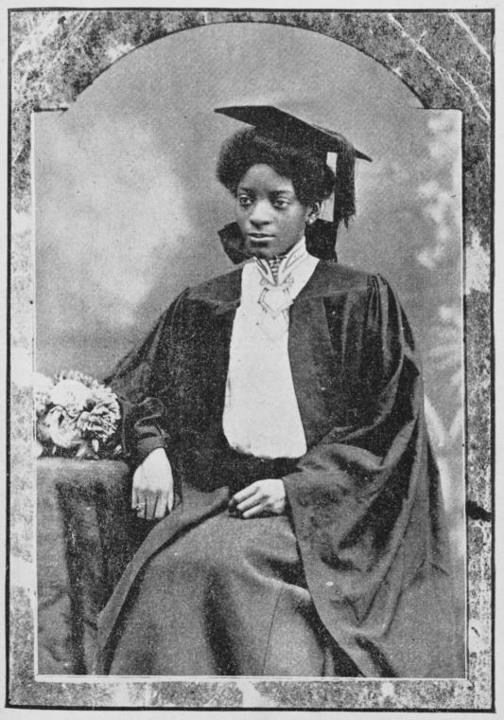
Sarah & Husband Captain James Davies
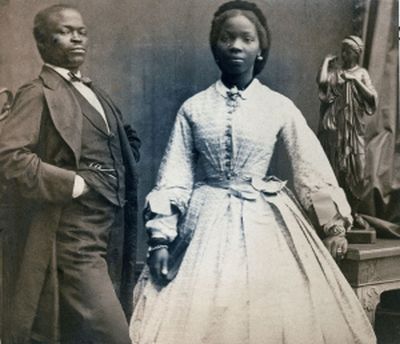
It should be noted that Sierra Leone was a part of the British Empire and later the Commonwealth and many freed American Slaves who fought on the side of the British during the War of Independance were repatriated there by the British after the abolition of slavery campaigned for by the Quakers & Society of Friends and of course in Parliament by William Wilbeforce, and last but not least Ignatius Sancho author & abolitionist from 1729-1780 another well respected influential black man
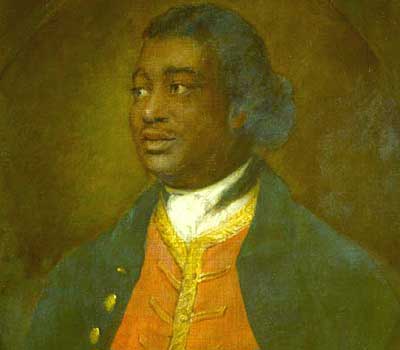
Little is know about John Blanke but he should be mentioned as being possibly the 1st black musician who attended at the lavish functions of Henry VIII and he is recorded in various scrolls and paintings. This was in the 16th Century and again, clearly not a slave not it would seem a subject of racism due to his seemingly favoured position. More striking i think is the fact that despite his colour it would seem from research that he was not marked out as anything special or unusual as one might imagine. It is thought he may have been brought to England with Catherine of Aragon in 1501 as part of her entourage which in itself indicates an absence of the racism we know today.
Another trumpeteer was recorded as early as 1470 on the Royal Ship Barcha of Naples and black drummers were recorded as being at the court of James IV in Edinburgh. Tudor England it seems was awash with Black people from many parts of Africa most of whom were highly talented skilled workmen & craftsmen and their wares were highly prized by English Royalty. These blacks were referred to as black mores or blackmoors and burial records are available that verify their existence. However little or no mention is made of their skin colour or race in records other than simply black more which gives rise to the belief that skin colour or race were simply not important enough to mention as much as say, ability or skill.
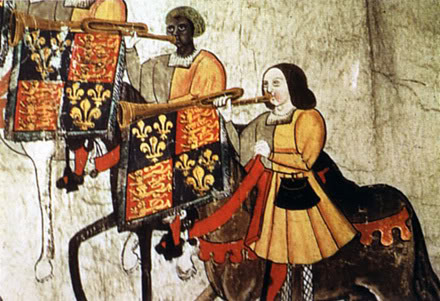
This links to a superb rendition of black Knights who were buried in Ipswich and whose skeletons appeared to be from North African probably Tunisia and dated around 1190.
The fact that these remains were found at a Friary and on consecrated ground also indicates that they must have been Christians and possibly holy knights
Black Knights
That leads me to believe that perhaps black people were far more commonplace that we once thought throughout history well before the onset of the business of slavery and that no discrimination was made with black people finding their way into high society through quality workmanship, exceptional nobility & bearing or many such other skills. Doors were not barred because of the colour of their skin. Many blacks were nobles and enjoyed life at the Courts of the Kings & Queens of Europe where it would appear that the colour of ones' skin was certainly not the stigma we are lead to believe it is today. Black Coats of Arms can still be seen in many European towns & cities such as the one below. Not only that but it would seem the whole phenomenon of racism as we know it today, was not in existence then from as far back as the middle ages at least and this is evidence by the number of Blacks in Portugal prior to and during the Portuguese slave trade agreements with the various African Kings, which in itself shows that slavery was NOT based on race or skin colour. It was not unusual in the slightest to see blacks on the streets of Portugal and not enslaved blacks. It seems from early literature that race was an alien concept during the middle ages and before, whiteness or blackness were not differentiated, which does make finding accurate figures difficult when no "colour" is mentioned. In fact many Kings & Queens in Europe sported black ancestry and many noble houses were in fact black.
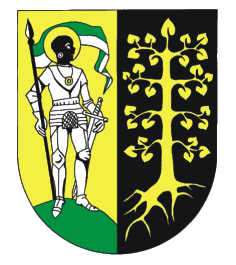
How many knew that the famous French General of the Revolution Thomas Alexandre Dumas was in fact black?

So when did this current "racism" start? That is the question since clearly being black in the past was no barrier to all kinds of success and definitely acceptance?
Sarah Forbes Bonetta was a Princess of the African Tribe of the Yoruba People of Nigeria. She was taken as a slave when her parents were killed when her village was sacked by the major slave trader of 1847 King Gezo of Dahomey who took Sarah prisoner then aged 4 where she remained until 1849. At that time an English Commander Frederick Forbes persuaded King Gezo to give Sarah as a present to Queen Victoria from "The King of the Blacks to the Queen of the Whites". She remained with Forges for a year in Africa where she was baptised Sarah and educated whereupon Forbes wrote "
“She is a perfect genius; she now speaks English well, and [has] great talent for music… She is far in advance of any white child of her age in aptness of learning, and strength of mind and affection
Forbes then took her to England in 1850 and introduced her to Queen Victoria who was highly impressed with the girl and when Forbes died unexpectedly in 1851, Queen Victoria named her her goddaughter and ensured she had the best possible education. Unfortunately Sarah developed a cough and Queen Victoria sent her briefly to Sierra Leone in the hope that the better weather would cure her, however Sarah was very unhappy there and returned in 1855 but still unwell. In 1862 Sarah was a guest at the wedding of the Princess Royal Victoria and a year later Sarah herself received permission to marry Captain James Pinson Lubella Davies of Sierra Leone and had a most lavish wedding in Brighton where the guests were made up of "White gentlemen with African ladies and White Ladies with African Gentlemen". The marriage was shortlived however with Sarah dying of tuberculosis in 1880 at the age of 37 on the island of Madeira. Queen Victoria continued to provide for Sarah's daughter Victoria and supported her education and gave her an annuity and her descendants can be found both in Nigeria and England with one branch the aristocratic Randle family being very prominent in Lagos. Clearly the colour of her skin or her race did not stop her achievments

Sarah & Husband Captain James Davies

It should be noted that Sierra Leone was a part of the British Empire and later the Commonwealth and many freed American Slaves who fought on the side of the British during the War of Independance were repatriated there by the British after the abolition of slavery campaigned for by the Quakers & Society of Friends and of course in Parliament by William Wilbeforce, and last but not least Ignatius Sancho author & abolitionist from 1729-1780 another well respected influential black man

Little is know about John Blanke but he should be mentioned as being possibly the 1st black musician who attended at the lavish functions of Henry VIII and he is recorded in various scrolls and paintings. This was in the 16th Century and again, clearly not a slave not it would seem a subject of racism due to his seemingly favoured position. More striking i think is the fact that despite his colour it would seem from research that he was not marked out as anything special or unusual as one might imagine. It is thought he may have been brought to England with Catherine of Aragon in 1501 as part of her entourage which in itself indicates an absence of the racism we know today.
Another trumpeteer was recorded as early as 1470 on the Royal Ship Barcha of Naples and black drummers were recorded as being at the court of James IV in Edinburgh. Tudor England it seems was awash with Black people from many parts of Africa most of whom were highly talented skilled workmen & craftsmen and their wares were highly prized by English Royalty. These blacks were referred to as black mores or blackmoors and burial records are available that verify their existence. However little or no mention is made of their skin colour or race in records other than simply black more which gives rise to the belief that skin colour or race were simply not important enough to mention as much as say, ability or skill.

This links to a superb rendition of black Knights who were buried in Ipswich and whose skeletons appeared to be from North African probably Tunisia and dated around 1190.
The fact that these remains were found at a Friary and on consecrated ground also indicates that they must have been Christians and possibly holy knights
Black Knights
That leads me to believe that perhaps black people were far more commonplace that we once thought throughout history well before the onset of the business of slavery and that no discrimination was made with black people finding their way into high society through quality workmanship, exceptional nobility & bearing or many such other skills. Doors were not barred because of the colour of their skin. Many blacks were nobles and enjoyed life at the Courts of the Kings & Queens of Europe where it would appear that the colour of ones' skin was certainly not the stigma we are lead to believe it is today. Black Coats of Arms can still be seen in many European towns & cities such as the one below. Not only that but it would seem the whole phenomenon of racism as we know it today, was not in existence then from as far back as the middle ages at least and this is evidence by the number of Blacks in Portugal prior to and during the Portuguese slave trade agreements with the various African Kings, which in itself shows that slavery was NOT based on race or skin colour. It was not unusual in the slightest to see blacks on the streets of Portugal and not enslaved blacks. It seems from early literature that race was an alien concept during the middle ages and before, whiteness or blackness were not differentiated, which does make finding accurate figures difficult when no "colour" is mentioned. In fact many Kings & Queens in Europe sported black ancestry and many noble houses were in fact black.

How many knew that the famous French General of the Revolution Thomas Alexandre Dumas was in fact black?

So when did this current "racism" start? That is the question since clearly being black in the past was no barrier to all kinds of success and definitely acceptance?
edit on 20-7-2016 by PhyllidaDavenport because: (no reason given)
So when did this current "racism" start? That is the question since clearly being black in the past was no barrier to all kinds of success and definitely acceptance?
What? Don't you think slavery might have had a little bit to do with it?
a reply to: PhyllidaDavenport
I believe racism against Blacks started due to the rise of slavery in the Americas and when European powers started colonizing Africa.
I believe racism against Blacks started due to the rise of slavery in the Americas and when European powers started colonizing Africa.
a reply to: PhyllidaDavenport
A lot of it started with the Abolitionist Movement of the 19th Century.
The idea that slavery was immoral combined with growing ideals of equality to create a storm of conflicting ideas. The slave trade fuelled Western economies in a similar way that oil does now. It generated wealth with high gains and low risks. Cities were built on the wealth from the Triangular Trade and who wanted to let go of their incomes and political influence?
In response to the pamphlets and political lobbying of the Abolitionists, there came about the counterpoint of different scales for 'races.' Africans were depicted as being less than Europeans and only slightly better than the animals. Miscegenation was a hot topic and considered a risk to racial 'purity.' There was an argument that equality should only extend to those who could be considered as 'men' and Africans were categorised as being outside of that definition.
The legacy of those old debates has lingered on and still echoes in today's cultures.
So when did this current "racism" start? That is the question since clearly being black in the past was no barrier to all kinds of success and definitely acceptance?
A lot of it started with the Abolitionist Movement of the 19th Century.
The idea that slavery was immoral combined with growing ideals of equality to create a storm of conflicting ideas. The slave trade fuelled Western economies in a similar way that oil does now. It generated wealth with high gains and low risks. Cities were built on the wealth from the Triangular Trade and who wanted to let go of their incomes and political influence?
In response to the pamphlets and political lobbying of the Abolitionists, there came about the counterpoint of different scales for 'races.' Africans were depicted as being less than Europeans and only slightly better than the animals. Miscegenation was a hot topic and considered a risk to racial 'purity.' There was an argument that equality should only extend to those who could be considered as 'men' and Africans were categorised as being outside of that definition.
The legacy of those old debates has lingered on and still echoes in today's cultures.
a reply to: ladyinwaiting
did you actually read the post? I know it was long but.....
Even the blacks had slaves, the Egyptians had slaves, the Phoenicans had slaves, the chinese had slaves the world is full of slaves. I asked about the current racism. Why should slavery have created this current racist phenomenon when it is now long gone for those kicking off about it? If it were down to slavery then racism would have existed far far before this 21st century and yet it appears it did not. This isn't a thread about slavery per se its about race & colour not even being an issue for hundreds of years and whilst slavery was a terrible dark era in history the current trend in racism cannot be attributed to something that happened so long ago that no-one involved in the race hate now, probably even have ancestors that were slaves. But what I'm trying to show is that if you are to continually harp back to the past, demand reparations, demand the death of whites, and demand more and more for something you were NOT affected by, then there is no getting past it and no possible future. Its rather like the Jews and the Holocaust trials very soon now they will run out of old people to prosecute and what then?
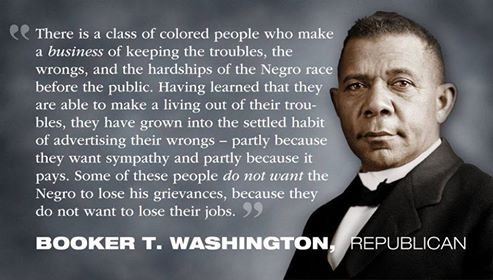
did you actually read the post? I know it was long but.....
Even the blacks had slaves, the Egyptians had slaves, the Phoenicans had slaves, the chinese had slaves the world is full of slaves. I asked about the current racism. Why should slavery have created this current racist phenomenon when it is now long gone for those kicking off about it? If it were down to slavery then racism would have existed far far before this 21st century and yet it appears it did not. This isn't a thread about slavery per se its about race & colour not even being an issue for hundreds of years and whilst slavery was a terrible dark era in history the current trend in racism cannot be attributed to something that happened so long ago that no-one involved in the race hate now, probably even have ancestors that were slaves. But what I'm trying to show is that if you are to continually harp back to the past, demand reparations, demand the death of whites, and demand more and more for something you were NOT affected by, then there is no getting past it and no possible future. Its rather like the Jews and the Holocaust trials very soon now they will run out of old people to prosecute and what then?

Africans were either sold into slavery by their own people, or kidnapped and put in the bottom of a ship, where they spent months making the long
journey to the US and/or western Europe.
In the bottom of the ship they were inadequately fed, and no provisions were made for a toilet or bathing. Like animals they were kept in stalls, with their own excrement.
From there they were taken to auction. They smelled to high heavens, (who wouldn't), were malnourished, and didn't speak the language. Many barely understood what was happening to them, still being in a state of shock. So it started with "they stink", "they are stupid". Some of them rebelled, some stole to feed themselves and others, and thus the stereotypes began.
In the bottom of the ship they were inadequately fed, and no provisions were made for a toilet or bathing. Like animals they were kept in stalls, with their own excrement.
From there they were taken to auction. They smelled to high heavens, (who wouldn't), were malnourished, and didn't speak the language. Many barely understood what was happening to them, still being in a state of shock. So it started with "they stink", "they are stupid". Some of them rebelled, some stole to feed themselves and others, and thus the stereotypes began.
a reply to: Kandinsky
Could well be yup however it should be noted that it is allowed to echo and linger
As I said in another post, my ancestors were pillaged and taken to Rome..should I now be pursuing the Italian Government for reparations?
Let it go...be the best possible person you can be and let others see that
Could well be yup however it should be noted that it is allowed to echo and linger
As I said in another post, my ancestors were pillaged and taken to Rome..should I now be pursuing the Italian Government for reparations?
Let it go...be the best possible person you can be and let others see that
a reply to: PhyllidaDavenport
If someone bumps into you and steps on your foot and apologizes, it can take moments to forgive them.
Other actions can take generations for forgiveness to occur. You are over simplifying something that is not at all simple.
For example, from a thread I once wrote:
Can you forgive the unforgivable?
My first attempt at studying forgiveness was a book referred to me by a colleague. It is entitled "The Sunflower" by Simon Wiesenthal. Wiesenthal, in 1944, was in a Concentration Camp. He was fetched to the bedside of a dying nazi, who wanted the "forgiveness" of "a Jew". The nazi spoke his piece, (peace) to Wiesenthal. After standing beside the nazi's bedside for a few moments, taking in what was happening, and in full realization of the meaning of the encounter, he turned, silently, and walked away.
From this encounter "The Sunflower" was born. Wiesenthal asks a variety of people what would they have done, and whether he did the right thing, and the people in the book respond with multiple insights and scenarios about what they might have done, having been in those circumstances.
The final decision in the book..seems to be that sometimes forgiveness is simply not possible, or that it can take generations to forgive. (I'm thinking I'm not even Jewish, but I really don't think I have forgiven the nazi's).
Forgiveness is not as easy and as simple as it might appear.
If someone bumps into you and steps on your foot and apologizes, it can take moments to forgive them.
Other actions can take generations for forgiveness to occur. You are over simplifying something that is not at all simple.
For example, from a thread I once wrote:
Can you forgive the unforgivable?
My first attempt at studying forgiveness was a book referred to me by a colleague. It is entitled "The Sunflower" by Simon Wiesenthal. Wiesenthal, in 1944, was in a Concentration Camp. He was fetched to the bedside of a dying nazi, who wanted the "forgiveness" of "a Jew". The nazi spoke his piece, (peace) to Wiesenthal. After standing beside the nazi's bedside for a few moments, taking in what was happening, and in full realization of the meaning of the encounter, he turned, silently, and walked away.
From this encounter "The Sunflower" was born. Wiesenthal asks a variety of people what would they have done, and whether he did the right thing, and the people in the book respond with multiple insights and scenarios about what they might have done, having been in those circumstances.
The final decision in the book..seems to be that sometimes forgiveness is simply not possible, or that it can take generations to forgive. (I'm thinking I'm not even Jewish, but I really don't think I have forgiven the nazi's).
Forgiveness is not as easy and as simple as it might appear.
edit on 7/20/2016 by ladyinwaiting because: (no reason given)
a reply to: ladyinwaiting
It is actually proposed by Black Revisionists that your statements are nonsense (i touched on this in another thread). The alleged number of slaves allegedly sent to the USA from Africa and the capabilities of ships during that 300yr period and the amount they could carry and number of trips they could possibly do per year, don't add up to the quoted 12m black slaves. it is also disputed apparently that as the Black slaves were valuable and in fact the slavers income, such ill treatment of their commodities would be unusual if they were to reap their rewards at auction. Black revisionists state they were already IN America when the white people arrived and that they were and are indigenous to the area. This is all from black people themselves not my words. I have no evidence of this line of thinking at all
It is actually proposed by Black Revisionists that your statements are nonsense (i touched on this in another thread). The alleged number of slaves allegedly sent to the USA from Africa and the capabilities of ships during that 300yr period and the amount they could carry and number of trips they could possibly do per year, don't add up to the quoted 12m black slaves. it is also disputed apparently that as the Black slaves were valuable and in fact the slavers income, such ill treatment of their commodities would be unusual if they were to reap their rewards at auction. Black revisionists state they were already IN America when the white people arrived and that they were and are indigenous to the area. This is all from black people themselves not my words. I have no evidence of this line of thinking at all
a reply to: ladyinwaiting
Clearly you don't believe as I that this whole current situation is being cleverly manipulated then? Do you not feel that the blacks of today currently protesting chanting and spewing hatred should take charge of their lives, live up to some of their superb role models, improve their lot themselves and stop the blame game/victimhood? Do you not think that these actions hold them back severely?
Clearly you don't believe as I that this whole current situation is being cleverly manipulated then? Do you not feel that the blacks of today currently protesting chanting and spewing hatred should take charge of their lives, live up to some of their superb role models, improve their lot themselves and stop the blame game/victimhood? Do you not think that these actions hold them back severely?
a reply to: PhyllidaDavenport
You really don't know what you are talking about. When I first saw this thread I thought it was perhaps a positive thing, but I see it's not. You have an agenda, and I don't care for it. You lack information, believe what you want to believe,
and that is where you are in your thinking.
You really don't know what you are talking about. When I first saw this thread I thought it was perhaps a positive thing, but I see it's not. You have an agenda, and I don't care for it. You lack information, believe what you want to believe,
and that is where you are in your thinking.
a reply to: ladyinwaiting
Enlighten me to what my agenda is exactly? The thread was merely to show and educate everyone as a matter of fact that blacks were accepted and were everywhere and it was a time of no regard to skin colour or race...and how it should be/could be again.....thats it. I was quite surprised myself to learn of black nobility in Europe and how skin colour was rarely even recorded. This was supposed to be a positive thread showing that we are not historically racist and clearly neither were the blacks regardless of the proliferance of slavery on all sides
You have commented on nothing else in my post except slavery you do not comment on all the positive just the negative
Enlighten me to what my agenda is exactly? The thread was merely to show and educate everyone as a matter of fact that blacks were accepted and were everywhere and it was a time of no regard to skin colour or race...and how it should be/could be again.....thats it. I was quite surprised myself to learn of black nobility in Europe and how skin colour was rarely even recorded. This was supposed to be a positive thread showing that we are not historically racist and clearly neither were the blacks regardless of the proliferance of slavery on all sides
You have commented on nothing else in my post except slavery you do not comment on all the positive just the negative
edit on 20-7-2016 by
PhyllidaDavenport because: (no reason given)
a reply to: PhyllidaDavenport
So I see this is what this thread was meant to be. We have issues as a nation now which are going to require time to work out. I have called these 'growing pains". I'm not in agreement with some of the tactics taken by BLM,( since that is obviously where you want to go with this thread). But I understand them.
I agree these groups need guidance, and daily I hope someone will step up to give them that. But they have every right to complain, and every right to want to make their lives better.
We can just say 'get over yourselves, put the past behind you and move on. As I said earlier, how do you forgive the unforgiveable? It can take generations as previously noted.
So I see this is what this thread was meant to be. We have issues as a nation now which are going to require time to work out. I have called these 'growing pains". I'm not in agreement with some of the tactics taken by BLM,( since that is obviously where you want to go with this thread). But I understand them.
I agree these groups need guidance, and daily I hope someone will step up to give them that. But they have every right to complain, and every right to want to make their lives better.
We can just say 'get over yourselves, put the past behind you and move on. As I said earlier, how do you forgive the unforgiveable? It can take generations as previously noted.
a reply to: ladyinwaiting
For crying out loud I am not and was not taking it to the BLM area which is why I specifically avoided using the words!
For crying out loud I am not and was not taking it to the BLM area which is why I specifically avoided using the words!
a reply to: PhyllidaDavenport
I'm at work, and have to move on. In the event I lose my ability to read between the lines and identify hidden agendas I will return to your thread.
You asked a question, and the three people who have posted on your thread have answered it. You want to debate whether nor not the answers are correct, while I see that they indeed, are. Simplified perhaps, but nonetheless accurate.
I'm at work, and have to move on. In the event I lose my ability to read between the lines and identify hidden agendas I will return to your thread.
You asked a question, and the three people who have posted on your thread have answered it. You want to debate whether nor not the answers are correct, while I see that they indeed, are. Simplified perhaps, but nonetheless accurate.
edit on 7/20/2016 by ladyinwaiting because: (no reason given)
a reply to: PhyllidaDavenport
To be honest, I replied because the subject is something I studied at Uni in Liverpool. I read your OP and was glad to see someone try to add a context to modern race relations. To my shame, I skimmed the OP and didn't appreciate where you were taking it. If I had, I wouldn't have commented.
The debate between Abolitionists and anti-Abolitionists wasn't a storm in a tea cup. It was a multi-national issue that had an impact on national economies and the rising movements for social and political equality. Even those who thought slavery was a terrible act realised that their quality of life was underpinned by it. It supported maritime commerce, international trade in goods and buoyed the influence of many in the political classes across Europe and the Americas. The first international trading organisations were born in the Triangular Trade.
This led to massive efforts to justify the continuation of the slave trade in the face of moral, religious and ethical sentiments of the period. Africans were thus relegated to being sub-human and outside of the due courtesies and fair treatment we were beginning to give to working classes and indentured labourers. Arguments went so far as saying we were doing them a favour to take them away from Africa. It was argued that we were making life better for those in Africa by thinning the numbers.
In Britain and the USA, Africans were depicted as brutes and rapists - creatures that appeared like men but were ill-formed and need a paternal guiding hand. They were characterised as something like two-legged cattle or child-like and stupid.
That presentation has existed in many forms since. It's muddied the objectivity of all people to this day.
Let's be accurate here? It was only 60 years ago when segregation ended in American States. The legacy is still within living memory.
To be honest, I replied because the subject is something I studied at Uni in Liverpool. I read your OP and was glad to see someone try to add a context to modern race relations. To my shame, I skimmed the OP and didn't appreciate where you were taking it. If I had, I wouldn't have commented.
The debate between Abolitionists and anti-Abolitionists wasn't a storm in a tea cup. It was a multi-national issue that had an impact on national economies and the rising movements for social and political equality. Even those who thought slavery was a terrible act realised that their quality of life was underpinned by it. It supported maritime commerce, international trade in goods and buoyed the influence of many in the political classes across Europe and the Americas. The first international trading organisations were born in the Triangular Trade.
This led to massive efforts to justify the continuation of the slave trade in the face of moral, religious and ethical sentiments of the period. Africans were thus relegated to being sub-human and outside of the due courtesies and fair treatment we were beginning to give to working classes and indentured labourers. Arguments went so far as saying we were doing them a favour to take them away from Africa. It was argued that we were making life better for those in Africa by thinning the numbers.
In Britain and the USA, Africans were depicted as brutes and rapists - creatures that appeared like men but were ill-formed and need a paternal guiding hand. They were characterised as something like two-legged cattle or child-like and stupid.
That presentation has existed in many forms since. It's muddied the objectivity of all people to this day.
Let's be accurate here? It was only 60 years ago when segregation ended in American States. The legacy is still within living memory.
Thank you for sharing! I really enjoyed reading your post. I want so much for blacks to rise up out of their situation.. But for some reason it's
like they are blind to what the solution is, and instead only make the problems worse and worse for themselves. Chinese were also taken slaves, but
their attitudes broke through any chains that tried to bind them. I wish I could see that in the black community as well bit unfortunately people
like Ben Carson and Larry Elder (Both incredibly brilliant black men) are ridiculed and ostracized.
Black people have a long and proud history of success throughout history even under periods of racist social policy. This is why I don't buy the
victimization narrative that has been pushed by liberals and many within the black community. In addition, not all white people are racists and many
really stepped up to stop slavery and racism even when it was socially acceptable.
Sometimes I wish our historical successes were hyped up more than our historical low point (slavery). Maybe then we wouldn't have so many people looking for pity.
I'm a 42 year old black man. I've been very successful in my life. Have I experienced some racism? Yes. Did it stop me? No.
I'm a realist. There will always be racism. ALWAYS. However, racism is not an excuse. It is just one of many barriers that we all must overcome in our lives.
Sometimes I wish our historical successes were hyped up more than our historical low point (slavery). Maybe then we wouldn't have so many people looking for pity.
I'm a 42 year old black man. I've been very successful in my life. Have I experienced some racism? Yes. Did it stop me? No.
I'm a realist. There will always be racism. ALWAYS. However, racism is not an excuse. It is just one of many barriers that we all must overcome in our lives.
Interesting....the man who was dying was a nazi and actively persecuted others...he asked for forgiveness from someone who lived that persecution.
How does that equate with modern day mentality regarding black slavery of centuries ago? How easy is it to forgive people who are now dead...even better...how easy is it not to blame those who weren't even involved or born when that was happening...based on THEIR skin tone?
Even better...how easy is it to GTF over something that hasn't even affected you on a personal level...how hard is it to be human, give yourself peace. the only turmoil going on appears to be in peoples heads.
Modern day racism isn't about forgiveness or even about some slavery that happened years ago. That might have been valid at the turn of the century but it's a cop-out now. It's carte blanche to be the very thing you're pretending you hate...you know what people are privileged and know it? The ones who continually play victim and wind up getting a free pass while the rest of us accept the guilt they say we should own.
that's happening right now, not centuries ago...and no, it's not easy to forgive, but we're expected to try...
How does that equate with modern day mentality regarding black slavery of centuries ago? How easy is it to forgive people who are now dead...even better...how easy is it not to blame those who weren't even involved or born when that was happening...based on THEIR skin tone?
Even better...how easy is it to GTF over something that hasn't even affected you on a personal level...how hard is it to be human, give yourself peace. the only turmoil going on appears to be in peoples heads.
Modern day racism isn't about forgiveness or even about some slavery that happened years ago. That might have been valid at the turn of the century but it's a cop-out now. It's carte blanche to be the very thing you're pretending you hate...you know what people are privileged and know it? The ones who continually play victim and wind up getting a free pass while the rest of us accept the guilt they say we should own.
that's happening right now, not centuries ago...and no, it's not easy to forgive, but we're expected to try...
a reply to: Kandinsky
Meanwhile full fledged slavery still exists in most muslim countries to this day.
For example, Mauritania formally oitlawed slavery in the 1980s but only started punishing slave ownership in 2007. Around 17% of the popoulation are still currently enslaved.
Worldwide estimates of the number of slaves currently suffering on earth range from 21 to 46 million people.
Meanwhile full fledged slavery still exists in most muslim countries to this day.
For example, Mauritania formally oitlawed slavery in the 1980s but only started punishing slave ownership in 2007. Around 17% of the popoulation are still currently enslaved.
Worldwide estimates of the number of slaves currently suffering on earth range from 21 to 46 million people.
new topics
-
Driving home for Christmas… fast!
General Entertainment: 3 hours ago -
My Retirement
General Chit Chat: 4 hours ago -
‘Something horrible’: Somerset pit reveals bronze age cannibalism
Ancient & Lost Civilizations: 5 hours ago -
Spiritual Solstice
Short Stories: 7 hours ago
top topics
-
'Mass Casualty event' - Attack at Christmas market in Germany
Mainstream News: 17 hours ago, 28 flags -
My Retirement
General Chit Chat: 4 hours ago, 9 flags -
‘Something horrible’: Somerset pit reveals bronze age cannibalism
Ancient & Lost Civilizations: 5 hours ago, 4 flags -
Spiritual Solstice
Short Stories: 7 hours ago, 3 flags -
Driving home for Christmas… fast!
General Entertainment: 3 hours ago, 3 flags
active topics
-
'Mass Casualty event' - Attack at Christmas market in Germany
Mainstream News • 117 • : onestonemonkey -
My Retirement
General Chit Chat • 8 • : mysterioustranger -
Spiritual Solstice
Short Stories • 3 • : GENERAL EYES -
‘Something horrible’: Somerset pit reveals bronze age cannibalism
Ancient & Lost Civilizations • 3 • : onestonemonkey -
US Federal Funding set to Expire December 20th. Massive CR on the way.
Mainstream News • 66 • : Skinnerbot -
Driving home for Christmas… fast!
General Entertainment • 2 • : Flyingclaydisk -
Post A Funny (T&C Friendly) Pic Part IV: The LOL awakens!
General Chit Chat • 7937 • : KrustyKrab -
Search to Resume for MH 370
Disaster Conspiracies • 10 • : nugget1 -
World's Best Christmas Lights!
General Chit Chat • 16 • : KrustyKrab -
My personal experiences and understanding of orbs
Aliens and UFOs • 24 • : trollz
